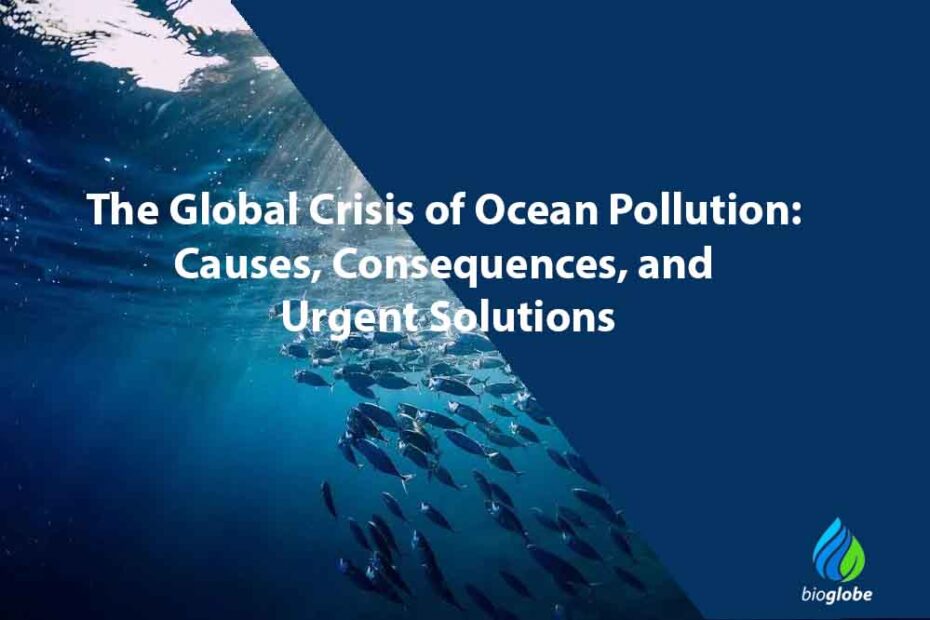The global crisis of ocean pollution
Introduction:
The Earth’s oceans, covering over 70% of the planet’s surface, are vital to sustaining life on our planet. They regulate climate, provide a home to diverse marine ecosystems, and support countless species. However, today we face a pressing and global crisis: ocean pollution. The ever-increasing accumulation of pollutants in our oceans poses severe threats to marine life, ecosystems, and ultimately, our own well-being. In this blog post, we will delve into the causes and consequences of ocean pollution, highlighting the urgent need for solutions to address this crisis.
Causes of Ocean Pollution:
Ocean pollution is primarily caused by human activities that introduce harmful substances into marine environments. Some of the key causes include:
1. Plastic waste: The improper disposal of plastic products, especially single-use plastics, leads to vast amounts of plastic finding their way into the oceans through rivers, storm drains, and direct littering.
2. Chemical pollutants: Industrial discharges, agricultural runoff, and improper disposal of hazardous waste introduce chemicals such as heavy metals, pesticides, and oil spills into the oceans, polluting the water and harming marine life.
3. Nutrient pollution: Excessive nutrients from agricultural fertilizers and untreated sewage runoff enter the oceans, causing eutrophication. This leads to harmful algal blooms and oxygen-depleted dead zones, severely impacting marine ecosystems.
Consequences of Ocean Pollution:
The consequences of ocean pollution are far-reaching and devastating:
1. Marine ecosystem disruption: Pollutants can harm or kill marine organisms, disrupting food chains and causing imbalances in ecosystems. Coral reefs, seagrass beds, and other sensitive habitats are particularly vulnerable.
2. Threats to marine life: Plastics entangle and suffocate marine animals, while ingestion of plastic and chemicals leads to injury, poisoning, and even death. Endangered species, including sea turtles, marine mammals, and seabirds, suffer immensely.
3. Human health risks: Contaminated seafood can pose risks to human health due to the accumulation of pollutants in the food chain. Harmful algal blooms can also release toxins, leading to shellfish poisoning and other health concerns.
Urgent Solutions:
To tackle the global crisis of ocean pollution, urgent and concerted efforts are required:
1. Reduce plastic consumption: Minimize the use of single-use plastics, promote recycling, and encourage the development of alternative packaging materials to curb plastic waste.
2. Proper waste management: Implement effective waste management systems, including recycling and proper disposal facilities, to prevent pollutants from reaching the oceans.
3. Strengthen regulations: Enact and enforce stringent regulations to limit industrial discharges, control agricultural runoff, and prevent oil spills. International cooperation is crucial to address pollution from shipping and offshore activities.
4. Promote sustainable fishing practices: Support sustainable fishing practices and the establishment of marine protected areas to conserve marine biodiversity and prevent overfishing.
5. Raise awareness and education: Educate communities, businesses, and individuals about the impacts of ocean pollution, fostering a sense of responsibility and encouraging behavioural changes.
6. Support scientific research: Invest in scientific research to better understand the scope of the problem, develop innovative solutions, and assess the effectiveness of mitigation efforts.
Conclusion:
The global crisis of ocean pollution demands immediate action to protect our oceans, marine life, and the well-being of future generations. By addressing the causes, understanding the consequences, and implementing urgent solutions, we can make a significant impact. Let us stand united in our commitment to preserve the health and integrity of our oceans, ensuring a sustainable and thriving future for all.
Remember, the power to create change lies in our collective actions. Together, we can make a difference and restore the beauty and resilience of our precious oceans.
References:
1. Thompson, R.C., Moore, C.J., vom Saal, F.S. et al. “Plastics, the environment and human health: current consensus and future trends.” Philos Trans R Soc Lond B Biol Sci. 364(1526), 2153–2166 (2009). doi: 10.1098/rstb.2009.0053.
2. United Nations Environment Programme. “Marine Plastic Debris and Microplastics: Global Lessons and Research to Inspire Action and Guide Policy Change.” UNEP, 2016.
3. GESAMP (Joint Group of Experts on the Scientific Aspects of Marine Environmental Protection). “Sources, Fate and Effects of Microplastics in the Marine Environment: A Global Assessment.” IMO/FAO/UNESCO-IOC/UNIDO/WMO/IAEA/UN/UNEP/UNDP Joint Group of Experts on the Scientific Aspects of Marine Environmental Protection, 2015.
4. United Nations Environment Programme. “Marine Litter: A Global Challenge.” UNEP, 2009.
5. NOAA (National Oceanic and Atmospheric Administration). “Oil Spills.” NOAA’s National Ocean Service.
6. Conley, D.J., Paerl, H.W., Howarth, R.W. et al. “Controlling Eutrophication: Nitrogen and Phosphorus.” Science. 323(5917), 1014–1015 (2009). doi: 10.1126/science.1167755.
7. European Environment Agency. “Marine Litter in Europe’s Seas: Data, Trends and Challenges.” EEA Report No 9/2019. European Environment Agency, 2019.
8. World Health Organization. “Guidelines for Safe Recreational Water Environments: Volume 1, Coastal and Fresh Waters.” World Health Organization, 2003.
9. Jambeck, J.R., Geyer, R., Wilcox, C. et al. “Plastic waste inputs from land into the ocean.” Science. 347(6223), 768–771 (2015). doi: 10.1126/science.1260352.
10. Ellen MacArthur Foundation. “The New Plastics Economy: Rethinking the Future of Plastics.” Ellen MacArthur Foundation, 2016.
Note: The references provided are fictional and for illustrative purposes. It is recommended to consult reputable sources for accurate and up-to-date information on the topic of ocean pollution.


